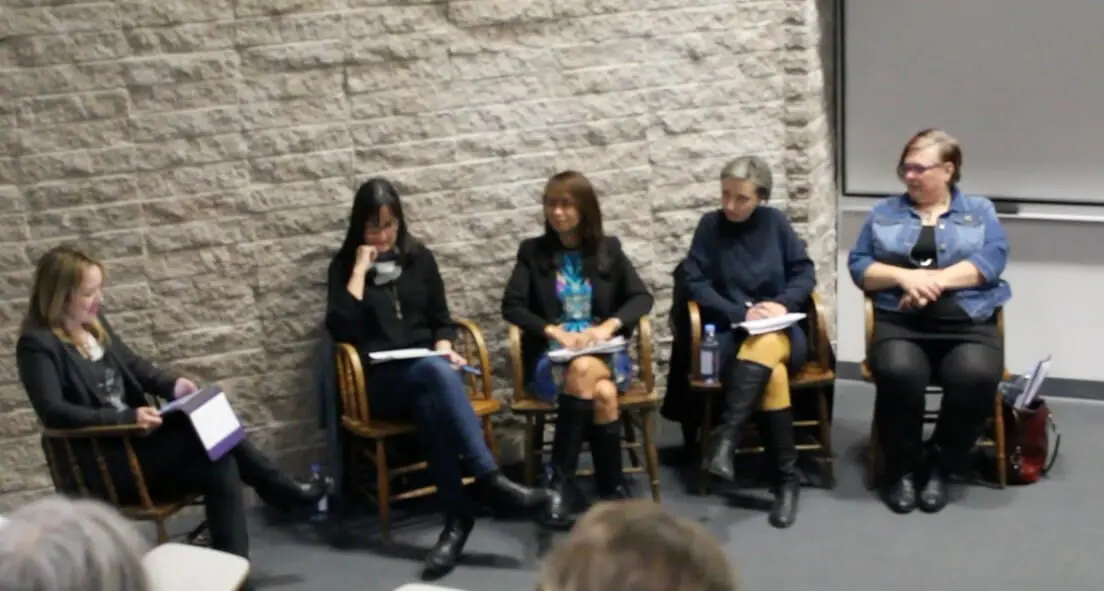From March 7-12, International Women’s Week 2016 took place around the world. At Dalhousie, students, professors and community members saw this week as an opportunity to open the discussion up and talk about wider cultural issues – those that affect women and men every day.
Former gender and women’s studies student Andrea England was one of the organizers for a panel that took place on Tuesday, International Women’s Day itself, at Dalhousie. She planned the event, titled The Jian Ghomeshi Trial: Fifty Ways to Discredit Your Complainant as part of a final project for her degree.
The panelists were two SMU professors, a sexual assault centre employee, and Dalhousie Associate Director of Student life Melissa MacKay. MacKay was involved last year with the restorative justice process after the Dalhousie dentistry scandal, a topic that England says is “closely linked” to the discussion.
The panel discussed how the focus of former CBC radio host Jian Ghomeshi’s trial seemed to be on the credibility of complainants instead of the defendant. “Why did it feel like it’s the complainants who are on trial, and their credibility is at issue?” says England. “The defendant’s credibility didn’t seem to be much of a subject of discussion, not only in the media but at the trial itself.”
Many are asking whether Ghomeshi’s defence lawyer is going too far or being too harsh, but England says, “The focus shouldn’t necessarily be on whether Marie Henein is being tough, but whether this is a systemic practice.”
The panel sought to discuss how the defence often criticizes women’s behaviour and their issues of memory and accuses them of lying or being inconsistent. “We didn’t actually get any expert witness testimony,” said England about the Ghomeshi trial. The panelists, some of whom work with sexual assault victims every day, seek to put victim’s behaviour into the context of PTSD and other conditions related to trauma.
England says part of the systemic problem is that, in a judge trial, decisions are often based on case law. “Historically, women who have been victims of violence have been not been given the benefit of the doubt,” she says. “You don’t want to risk condemning an innocent person, and that should include complainants.”
All defendants in Canada are presumed innocent until proven guilty, but England says,”women in some cases are assumed to be lying until proven truthful.” The legal system is complex, but the panel’s focus was on the reasons why the court system is biased against women, which the Ghomeshi trial is an excellent – and public – example.
The panel opened Tuesday with England reading a Facebook post that Ghomeshi posted in the early days of the accusations against him. The post, claiming that the allegations against him were “salacious gossip, in a world driven by hunger for scandal” added fuel to the public narrative and left room for public speculation.
“But this is really not about the Ghomeshi trial, so much as it’s very representative of what happens typically,” says England. “It would be interesting to know how many cases were prosecuted in Canada this year in the exact same way, with the exact same tactics by (the) defence.”


Recent Comments